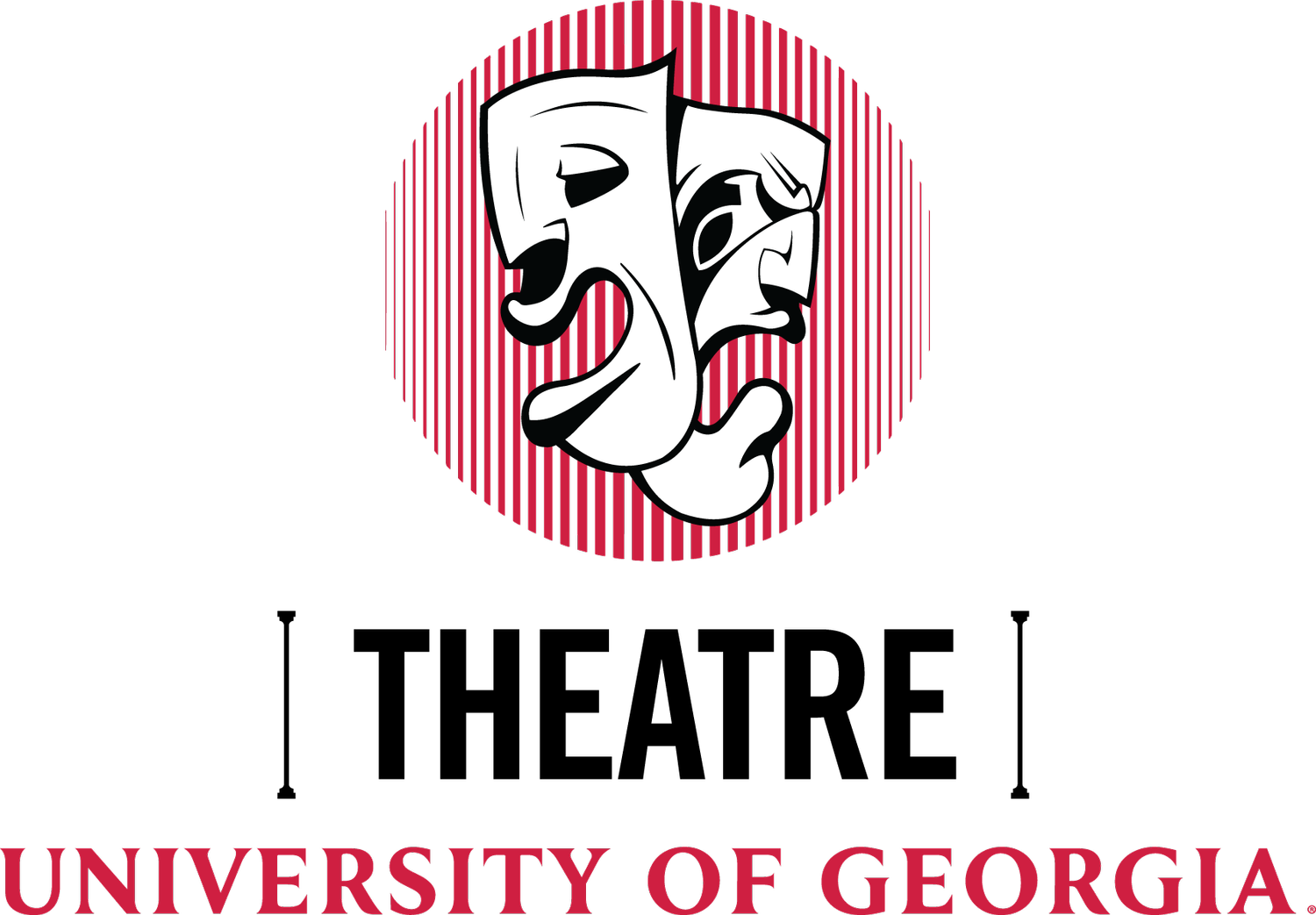Q&A: MFA Actor Charlie Cromer | "Iago"
Charlie Cromer is an third-year MFA Acting student with the Department of Theatre and Film Studies. He will be portraying Iago in UGA Theatre's upcoming production of Shakespeare's Othello, opening April 6.
Who is Iago to you?
He is a soldier. A murderer. A husband. A liar. A trusted friend. An actor. In rehearsal, he is shaping up to be a classical abuser. He isolates his victims to control their narratives. The danger he poses is more existential than physical, despite the play’s body count. This is Iago, who I am learning about as I perform. There is also [Iago] the cloud of possibles. [Iago] is an aspect of Trickster and a Keeper of the Crossroads. Loki, Eleggua, Dionysus, and Jack of Tales are all members of Iago’s family.
What are your favorite things about Iago? What are your least favorite things about him?
I love being able to just sit back and watch my fellow actors in the group scenes when Iago is silent. Nash (Duke/Montano), Melanie (Desdemona), and Scotty (Barbantio/3rd Soldier) absolutely slay the Senate confrontation and all I have to do is hug the wall and take it in.
Likewise, I love being able to focus on just one partner in my heavier scenes. Iago spends the majority of his time on stage working either Roderigo, Othello, or Cassio individually and Anna, Marlon, and Brian are dreamy scene partners. Being able to give them all the focus and attention and respect that they deserve while simultaneously being so richly rewarded with their artistry and passion is a gift.
Then there’s the side relationship I get to build with Katie, who plays my wife, Emilia. We get all of two pages to ourselves on stage yet this relationship is vital to explaining why Emilia doesn’t blab until Act 5. The glances we share, the little familiar touches we try to work in, it’s such delicate work and I hope audience perception will honor Emilia’s character journey which, personally, breaks my heart.
There are a few soliloquies I’m currently trying to make work center stage and those are my weakest moments during the show. To be surrounded by the crowd, trying to tell your story, it’s a skittery feeling. When will the floor drop and the noose tighten?
With this being your thesis role, what is your thesis about? What exactly are you concentrating on with your portrayal and research?
The door has one side and opens both ways.
My original research inquiry was simply “What motivates Iago?” Michael Chekhov pointed out that my creative individuality had gone ahead to clear a path through the forest. As I ventured inwards I was joined by H.P. Lovecraft, Shunryu Suzuki, Alan Moore, Grant Morrison, Aleister Crowley, Dame Francis Yates, and Simone de Beauvoir. Others lurked in the shadows of the trees, their susurrations damnably suggestive. Each clearing brought a chance of respite and enlightenment. My stays within these fairy circles became longer and longer as knowledge clotted with context. First was Creation: a sigil by which [Iago] may be summoned in conjunction with the appropriate songs. Second was Ambiguity: our bodies perform our entire history simultaneously. Third was Perception: psychic immolation to slough off duality. Fourth will be Acceptance: form is form and emptiness is emptiness.
The door has one side and opens both ways.
What is it like to rehearse in an arena setting? Is it more challenging or more fun than a proscenium style show?
Michael O’Connell’s set, a rectangle with a slightly raised platform in the center, supports and showcases essentialized action. An actor’s tempo, direction, level, and proximity relative to other actors, these physical nuances take center stage to visually communicate characters’ inner lives and shifting relationships. Audience’s eyes will interpret the story even if Shakespeare’s heightened language occasionally slips by their ears.
Iago instills a sense of culpability and even complicity amongst spectators. My hope is that audiences being confronted with themselves just across the playing space amplifies the question in their minds, “Why did I just sit here and let this happen?”
How do you think Othello fits into the UGA Theatre season of “Balances of Power?”
Power is only observable in its expressions and Othello showcases a variety of that. Institutional power bestowed versus natural power recognized. The State’s power over life and death. Economic power exercised, especially amongst the women of the play. Gross physical power. The destructive power of love. Iago exploits and thereby highlights the imbalances of power at play in our society.
Why do you think this play is important to today? What makes it relevant?
Fran Teague has already done a wonderful job of explicating the main reasons I believe Othello is relevant to today. You’d be better off reading her dramaturgical notes at https://www.ugatheatre.com/othello.
In my own words, though, I think the show teaches us the risk we run by depending on external “truths.” The unexamined life leaves us panicked in the face of counternarratives.
One of Iago’s most effective psychic strikes is to point out that if Desdemona could lie so convincingly to her father about loving Othello, she could do the same to Othello about Cassio. And it’s true, she could! But she hasn’t and wouldn’t for an array of contextual reasons. If you never allow yourself to confront the hard truth that your partner could cheat on you, you will never understand the many reasons why they don’t, and you will forever be terrified of the possibility they may. H.P. Lovecraft said, “The oldest and strongest emotion in mankind is fear, and the oldest and strongest kind of fear is of the unknown.”
Our culture has got to give up the child’s notion that there is any absolute to be found in life. We have to accept the hard work of constantly reevaluating what we choose to judge “good” and “bad.” Life is change. Only death is absolute.

